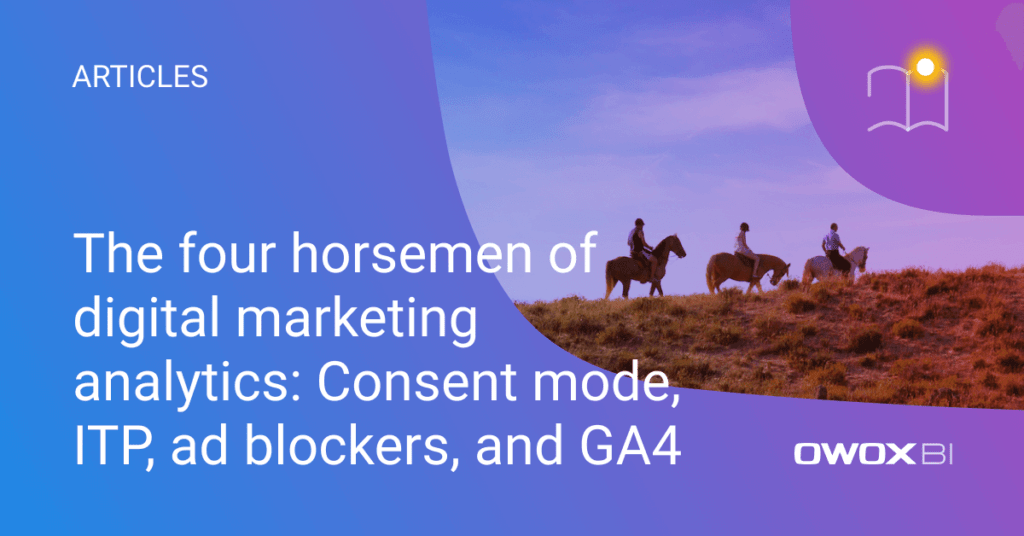What’s happening
The new version of Google Analytics uses a completely different data structure and data collection logic. Universal Analytics has a so-called session-based (cookie-based) data model, with reports built on Client ID and sessions. Google Analytics 4 has an event-based (user-based) model, where everything is built around events (and not around sessions), and any interaction with the website is considered an event. Events are logged, and the user’s path through the website is built from them.
What you can see in your reports
If the structure of the initial data changes, then all reports that use this data will have to be redone.
For example, say you have an old report in Google Sheets or Data Studio based on Universal Analytics data. You’ve set up Google Analytics 4, collected data for a while, and decided to connect it to this report. But Google Analytics 4 collects sessions in a different way, the numbers do not match, and traffic and other indicators are gone. Now the question arises: What is the problem? Did you set up tracking in GA4 incorrectly? Did you build data queries incorrectly? Or did something change in the market?
In order for Universal Analytics data to be comparable to Google Analytics 4 data, your data needs to be transformed into a modeled structure — in short, reduced to a common denominator. In this case, it will be necessary to rewrite all SQL queries that form your reports. And you will have to do this every time you need to change a report, add new metrics, etc. Marketers and other employees cannot order reports in advance because they do not know which may be needed at any given moment.
But constantly rewriting all SQL queries is not an option — they will become obsolete faster than analysts write them.
How to solve it: Set up Google Analytics 4 now
If your KPIs include metrics such as ROAS and/or online conversions, you have approximately two months left to smoothly upgrade to Google Analytics 4. Yes, only two months, even though the Universal Analytics shutdown date is July 1, 2023.
The reason is that the Google Analytics 4 data schema and logic is different from that of Google Analytics Universal. Thus, annual trends are at stake unless you start collecting data in Google Analytics 4 by July 1, 2022.
For example, sessions in Google Analytics 4 do not break at midnight, and events can have traffic sources other than sessions. Thus, you can expect discrepancies between the same indicators.
Root cause analysis is a fundamental activity for every digital analyst and is almost impossible without seasonality data.
OWOX has a solution that will help you make the transition to Google Analytics 4 as painless as possible, keep the reports you need, and get new ones without having to rewrite SQL queries. A lot of our clients have already taken advantage of it.
Find out how OWOX BI can help you transition to GA4 by signing up for a demo.
This content was originally published here.




